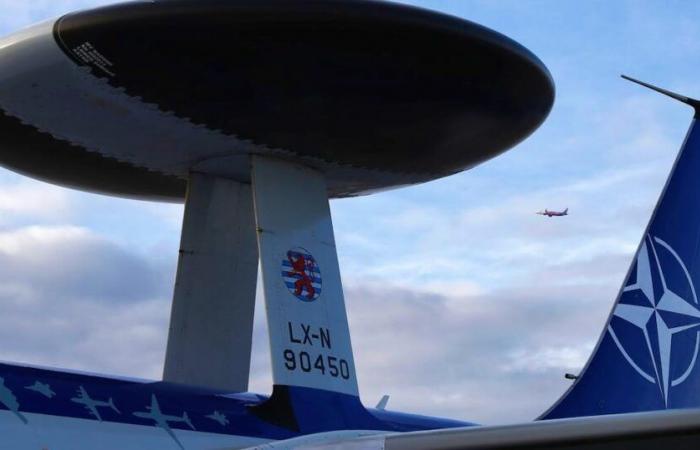Frequent in the skies of the Baltic countries, interceptions of Russian planes by NATO forces are carried out to observe these aircraft and prevent them from entering their airspace.
KEYSTONE
Nearly three years after Russia's invasion of Ukraine in February 2022, the interceptions are going well, with the tacit agreement between the adversaries that everyone should be careful to prevent escalation.
“The control will give us headings and attitudes to take in order to be as discreet as possible, to pick it up and identify it as we go,” says Commander Mathieu, the head of the French detachment of the NATO air police, currently on mission at the Siauliai base, in Lithuania.
There are always two planes, Rafale for this mission, which take off in order to ensure the protection of a plane in the event of aggressive behavior of the intercepted aircraft. We first arrive behind the device to be identified, at a distance of around a kilometer. We can then define what type of device we are facing (transport, hunting, etc.) or if there are several in close formation.
The control then orders to get closer, approximately 300 meters and in vertical spacing, to identify the characteristics of the device: is it armed, does it have reconnaissance pods, etc.
We will not approach less than 100 meters from the plane to avoid it feeling in danger. We gravitate around it, passing left, right, below and above. This allows you to clearly see if it is armed and take photos. The operation can go as far as radio interrogation. If the aircraft does not follow its flight plan, this is a suspicious element.
“Avoid escalation”
“If, when we are in the final phase and we see the device coming towards us, we will avoid the interception and we will leave. As part of NATO's air policing, all we want is to avoid an escalation,” underlines Commander Mathieu.
An alert is triggered for a variety of reasons, however, there are three international aviation requirements: being in contact with the civil air traffic control unit, filing a valid flight plan, and sending a “friendly” identification signal. or enemy” via a transponder. NATO deploys its rapid reaction warning aircraft to intercept any aircraft flying near, towards or violating Alliance airspace, NATO Air Force Command stresses interviewed by AFP.
For Commander Mathieu, these interception missions are “gaining importance” in the face of Russia, which can deviate at “any time” from today’s “professional” behavior. “We are here to maintain the status quo in this region” and reassure countries “which are afraid and do not at all want to return to Russian rule.”






